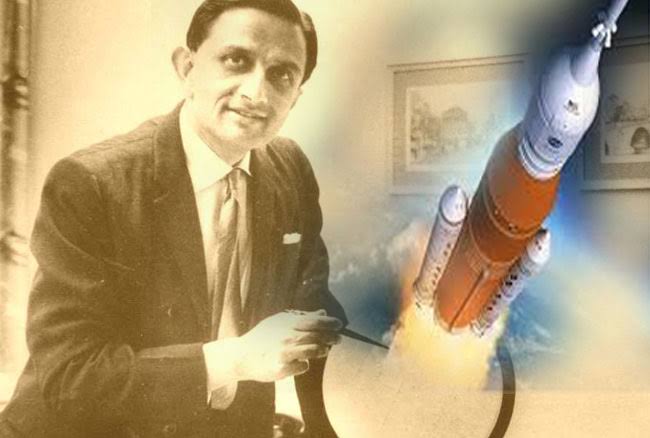


ISRO Chairman S. Somanathan, in his address at Delhi's IIIT convocation, emphasized the crucial role of technology and product development in propelling India's economic growth. He commended the efforts of Elon Musk and his contributions to the global space sector, stating that India should strive to develop its own expertise in fields such as propulsion and material sciences. He also lauded the government's move to involve private players in the space industry, seeing it as a means to fasten development and increase competitiveness. Somanathan encouraged young engineers and scientists to continue learning and adapting in the ever-changing landscape of technology.
ISRO Chairman Advocates for Technological Advancement and Product Development for India's Economic Growth
Recently, ISRO Chairman S. Somanathan emphasized the paramount role of technology and product development in fostering India's economic growth. Speaking at the convocation of Delhi's IIIT, Somanathan commended the contributions of Elon Musk to the global space sector and urged India to develop its expertise in propulsion and material sciences.
Background:
India's space program has made significant strides over the past several decades, with ISRO achieving numerous successes, including the launch of the Mars Orbiter Mission and the Chandrayaan lunar missions. However, Somanathan believes that India needs to accelerate its technological development to remain competitive in the global space industry.
Key Points of Somanathan's Speech:
Top 5 FAQs:
Q1. What are the key areas India should focus on for technological development? A1. Propulsion and material sciences are among the critical areas identified by Somanathan.
Q2. How can private sector involvement benefit India's space industry? A2. Private companies bring innovation, flexibility, and efficiency to the development and operation of space systems.
Q3. What has been ISRO's role in India's technological advancement? A3. ISRO has played a pivotal role in developing satellite technologies, space exploration capabilities, and remote sensing applications.
Q4. What is Elon Musk's significance in the global space sector? A4. Musk is known for his pioneering efforts in reusable rockets, electric vehicles, and private space exploration.
Q5. What are the challenges India faces in furthering its technological development? A5. Access to funding, skilled workforce, and a robust infrastructure are among the challenges that India needs to address.
Conclusion:
Somanathan's address underscores the critical importance of technology and innovation for India's economic growth. By embracing a culture of learning, collaboration, and ambitious goals, India can unlock its potential to become a global leader in technological advancements and establish itself as a significant player in the global space industry.

As winter arrives in India, so does the hazardous air pollution. Delhi NCR's AQI has already crossed the 400 mark, making it crucial to invest in air purifiers, especially after Diwali. Dyson, Qubo, HomePure, and Philips have launched high-quality air purifiers with advanced features to tackle different types of pollutants and create cleaner indoor air. With prices ranging from Rs 5,000 to Rs 1 lakh, these purifiers are a practical and timely purchase for a healthier living.

In a recent family vlog, Indian celebrity couple Shoaib Ibrahim and Dipika Kakar shared their "natural" hair care routine for their son, using a homemade mask made with rice flour, flax seeds, and coconut oil. However, experts warn that what works for adults may not be suitable for babies, whose sensitive skin and scalp could react to the ingredients. While the ingredients may improve hair texture, they do not necessarily promote hair growth. Instead, a healthy diet and good scalp care are more important in maintaining healthy hair.

A recent consumer study has found multiple brands of soft contact lenses in the U.S. to contain "forever chemicals" that can be harmful to both the body and the environment. The study, conducted by the nonprofit organization Environmental Health Sciences, tested 18 varieties of popular contact lenses and found all of them to contain markers for PFAS. Brands such as Acuvue, Alcon, and CooperVision were among the list of affected products. This news serves as a cautionary lesson on the potential risks of overusing contact lenses.

On the birth anniversary of Dr. APJ Abdul Kalam, the ‘Missile Man’ of India, tributes pour in on social media celebrating his life, vision and impact. A visionary scientist, inspiring leader and true patriot, Dr. Kalam's humility, compassion and constant interaction with students continue to inspire generations. His tireless efforts in defense, science and youth empowerment have strengthened India's path towards self-reliance and his legacy continues to motivate young minds to dream big and work hard for the nation.

Recent studies have found that extreme heat, particularly when combined with high humidity, can have a significant impact on mental health. A study in India showed that when wet bulb temperature exceeded 27°C, the probability of reporting severe depression increased by 0.5%, even when the temperature was slightly lower. This finding is consistent with global reviews that have linked high temperatures to mood disorders, increased hospital admissions for psychiatric conditions, and even elevated suicide risk. The Lancet has also published evidence that rising temperatures worldwide are a growing threat to emotional and cognitive health.

In a meeting with university officials in Udaipur, Rajasthan Governor Hari Bhau Bagde stressed the importance of incorporating India's ancient knowledge traditions into academic research. He highlighted the deep repository of knowledge in India since ancient times and urged scholars and scientists to draw upon this tradition in their work. Bagde also suggested making ancient texts available in university libraries for study and research purposes, in order to shape the intellectual abilities and love for the nation among the younger generation.

John Clarke, Michel H. Devoret, and John M. Martinis have been awarded the 2025 Nobel Prize in Physics for their pioneering research into quantum mechanical tunnelling. Their discovery has opened new possibilities for quantum technologies, and will be formally presented on December 10, the anniversary of Alfred Nobel's death. This announcement follows the tradition of recognizing transformative contributions to science, and the award carries a prestigious prize of 11 million Swedish kronor.

The US-Japanese trio of Mary E Brunkow, Fred Ramsdell, and Shimon Sakaguchi have won the 2025 Nobel Prize in physiology or medicine “for their discoveries concerning peripheral immune tolerance". Through their research, they have shown how the immune system is kept in check and why serious autoimmune diseases do not affect everyone. Sakaguchi found a new class of T cells, while Brunkow and Ramsdell discovered the explanation behind a specific mouse strain's vulnerability to autoimmune diseases. Together, they have significantly advanced our understanding of immunology and autoimmune diseases.

Indian astronaut Shubhanshu Shukla, who recently completed a 20-day space mission, shared his insights and experiences at the convocation ceremony of Dr. APJ Abdul Kalam Technical University. He highlighted the importance of patience, focus, and the inevitability of change in achieving success, and urged the graduating class to actively contribute to shaping a fearless and ambitious India.

The Regional Meteorological Centre (RMC) in Chennai has issued a weather alert for parts of Tamil Nadu, with thunderstorms and light to moderate rainfall expected on Saturday. The alert was issued due to the strengthening of a cyclonic circulation in the Bay of Bengal, which is likely to intensify and form a low-pressure area. The system is expected to affect Tamil Nadu, Puducherry, and Karaikal, with some areas experiencing heavy rainfall and gusty winds. The public is advised to stay updated and take precautions, especially in hilly and western districts.